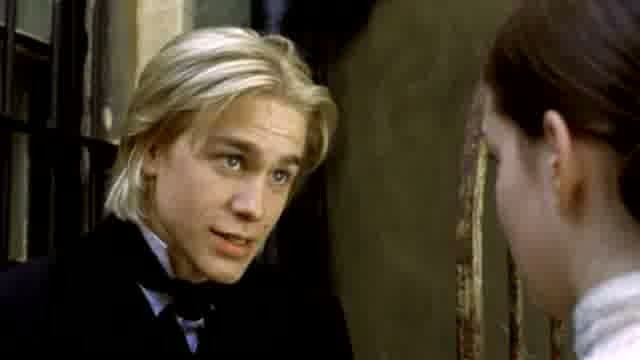Regie:
Douglas McGrathDrehbuch:
Douglas McGrathKamera:
Dick PopeMusik:
Rachel PortmanBesetzung:
Charlie Hunnam, Stella Gonet, Christopher Plummer, Jamie Bell, Jim Broadbent, Juliet Stevenson, Edward Fox, Anne Hathaway, Romola Garai, Tom Courtenay (mehr)Streaming (2)
Inhalte(1)
Die Lage nach dem Tod des Familienoberhauptes ist erbarmungswürdig. Und der einzige, an den sich der junge Nicholas Nickleby in seiner finanziellen Not zu wenden weiß, ist Onkel Ralph, der in London lebende Bruder seines verstorbenen Vaters. Von ihm hat es immer geheißen, er sei äußerst wohlhabend – und durchaus wohltätig gesinnt. Also machen sich Nicholas, seine Mutter und seine Schwester Kate vom ländlichen Devon auf den Weg in die große Hauptstadt. Doch der vermeintliche Retter entpuppt sich als herzloser Tyrann. Der alte Herr hat nämlich sofort einen Plan: seine unschuldige Nichte Kate will er, gegen entsprechende, dringend benötigte Geldzuwendungen, an einen widerwärtigen Geschäftsfreund verkuppeln. Und Neffe Nicholas wird im Eiltempo zurück aufs Land geschickt und damit als potentieller Störenfried aus dem Weg geräumt. Als Hilfslehrer soll er im Internat Dotheboys Hall arbeiten und mit dem mageren Gehalt seine Familie im fernen London unterstützen. In Dotheboys Hall führen Wackford Squeers und seine Gattin ein schreckliches Regiment: ihre kleinen Schutzbefohlenen, die eigentlich sorgenfrei lernen sollten, führen in den trostlosen Hallen ein entbehrungsreiches Leben. Am schlimmsten hat es allerdings den jungen Smike getroffen: ihn behandelt das böse Ehepaar Squeers so gnadenlos ungerecht wie einen Sklaven. Nicholas und Smike freunden sich an und fliehen, bei Nacht und Nebel vor ihren Peinigern. Das Abenteuer ihres Lebens kann beginnen. (Verleiher-Text)
(mehr)Kritiken (1)
From previous encounters with adaptations of Charles Dickens's novels, I know that the British approach his literary legacy with the respect that is owed to a national classic. They usually spare no expense and engage famous names in the leading roles at the very least. Those are exactly the strengths of Nicholas Nickleby. However, there are some difficulties with the other aspects. Dickens wrote his novel in the 1830s. Although it falls into the better part of the contemporary production, it was not an innovative work, even within the author's oeuvre it is at best average. The simple moralistic story with traditional social themes has significantly black-and-white characters and is woefully predictable. The first third has a certain insight, provided mainly by the well-crafted family of the owner of the rural school. The second third is saved by the theatrical ensemble, but with the increasing minutes, the insight disappears and the film is dominated by naivety and sentiment. In the last third, I was cringing during some of the dialogues. Today we have higher education and culture has undergone a long development, so we are accustomed to more complex characters and more credible motivations. Perhaps this film needed to be less slavishly faithful to the spirit of the original work, as even a small shift would have been to its benefit. Overall impression: 45%.
()

